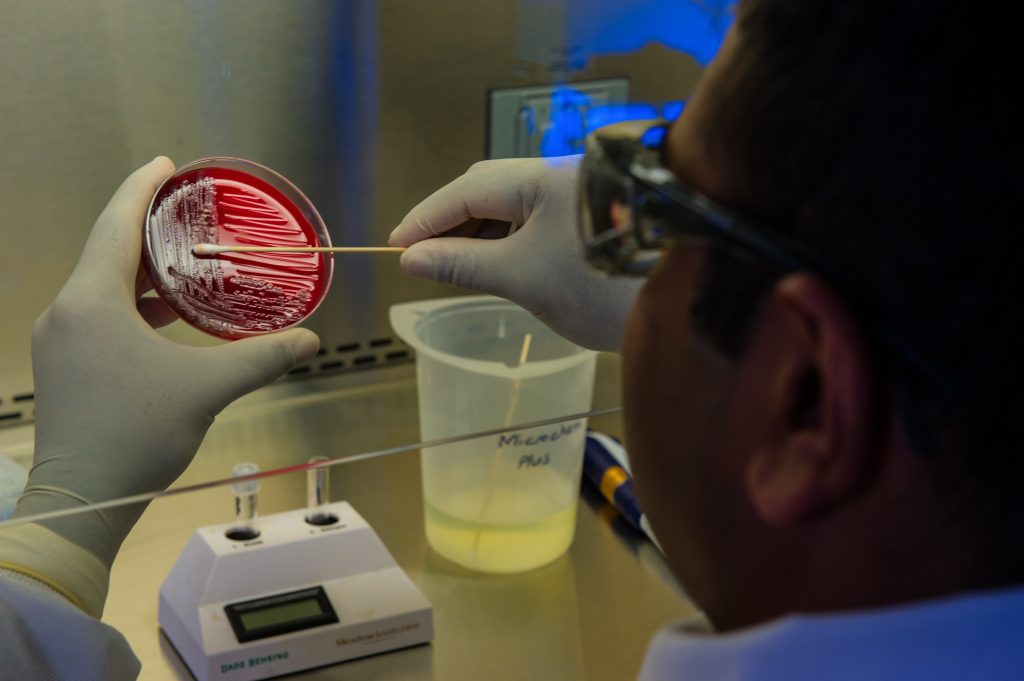Microbiology is a rapidly expanding field of study in Nigeria, attracting an increasing number of students each year. The field is incredibly diverse and offers a wide range of career paths, with a focus on the study of living organisms, microorganisms, and their relationship with the environment.
We will discuss the advantages or the pros of pursuing a career in Microbiology in Nigeria and why it is an excellent choice for those who want to make a difference in the world.
Is microbiology a good career in Nigeria
As a student of microbiology or as someone who intends to study microbiology, you may be asking if microbiology is a good course to study in Nigeria. Well, we will reveal the details shortly.
Microbiology is a field of science that has gained increasing importance over the past few years, particularly in light of recent global health concerns such as the coronavirus pandemic.
Since microbiology is the branch of science that studies the world of these pathogenic microorganisms, it, therefore, denotes that generally, microbiology is a good career or course to study.
Interestingly, microbiology cuts across many industries and disciplines due to the ubiquitous nature of microorganisms and this makes it very lucrative.
But by putting Nigeria into the picture, the narrative changes a bit.
The Nigerian Perspective

Here it is;
Microbiology is a valuable and significant course. Nonetheless, many concerned people generally give advice to budding young lads to not pursue the study of Microbiology in Nigeria given the current economic state, the current structure of the BSc program, and as well as the labor market in Nigeria.
Especially the labor market.
It is generally believed that upon graduating from a higher institution, you won’t be able to find a job in several industries where microbiologists are needed especially the medical industry hence Medical Laboratory Science is recommended as a better alternative.
Even sometimes, these people propose Science Laboratory Technology as a better alternative too since they’re licensed and are made to carry out research projects meant for microbiologists in a research lab.
Additionally, they believe Microbiology is only worth studying abroad if truly you have a strong passion for the course.
Pros of studying microbiology in Nigeria: Worldview
- Improved Health Outcomes: Studying microbiology can lead to improved health outcomes for individuals and communities since it focuses on the detection and identification of microorganisms hence your contribution to the well-being of humans won’t be insignificant.
- Job Opportunities: Contrary to the Nigerian perspective that focuses only on the medical industry, microbiology graduates can find job opportunities in research and development, government agencies, hospitals, biotechnology, and pharmaceuticals.
- Cutting-Edge Research: The field of microbiology is constantly advancing, and studying microbiology in Nigeria can expose you to cutting-edge research on diseases and pathogenic microorganisms as you pay attention to academic journals.
- Opportunity for Collaboration: Microbiologists often join other scientists (at home and abroad) including those in related fields such as immunology and genetics to find solutions to health problems.
Cons of studying microbiology in Nigeria: Worldview
- Limited Resources: Nigeria’s healthcare system is often underfunded and understaffed. This can limit the resources available for microbiology research and education.
- Emerging and Re-emerging Diseases: Nigeria is prone to emerging and re-emerging diseases like Ebola, and Lassa fever. This can pose a significant risk to microbiologists and health professionals.
- Limited Career Growth: While there are opportunities for microbiologists in Nigeria, there may be limited opportunities for career advancement – for this reason, many microbiologists in Nigeria often further their studies abroad.
- Funding: Securing financial support for research projects can be challenging in Nigeria.
Is microbiology a professional course in Nigeria
A professional course is a type of education that provides students with practical skills that prepare them for employment upon completion.
These courses are typically designed for those who are currently in or about to enter the workforce in corporate, government, or technology fields, and they may be tailored to meet the needs of a specific industry or profession.
Professional courses are offered by universities, companies, and other organizations, and may result in a professional degree or certificate in a specific field.
Therefore, in Nigeria, microbiology is a professional course. While the field may have some limitations due to factors such as a lack of prior experience and adequate training, it is a recognized and respected field of study in the country.
The Nigerian Society for Microbiology is a professional organization that exists to support and promote the field of microbiology in Nigeria.
What Next?
Finally, whether microbiology is a good career in Nigeria is determined by a variety of factors, including personal interest, skills, educational attainment, job prospects, and working conditions. Before making a decision, it is critical to conduct additional research and weigh the pros and cons.
However, studying microbiology in Nigeria can be a rewarding experience with tremendous benefits.
Read Next
Can I study medicine after microbiology in Nigeria?
15 Benefits of studying microbiology in Nigeria
History of microbiology in Nigeria
Can you use the gram staining protocol on mycoplasma
